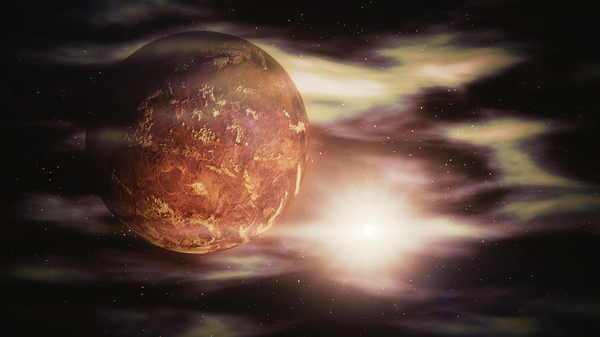A new study conducted by researchers from the United States has revealed that the super-heated and toxic planet known as Venus may not have always been the hellhole it is today, Science Alert reports.
According to the media outlet, the scientists postulated that in the past, the planet could have been able to support oceans of liquid water, until some unspecified cataclysm about 700 million years ago put an end to it.
"Our hypothesis is that Venus may have had a stable climate for billions of years”, said Michael Way, planetary scientist from NASA's Goddard Institute for Space Studies. "It is possible that the near-global resurfacing event is responsible for its transformation from an Earth-like climate to the hellish hot-house we see today."
The authors of the research, whose findings were presented at the EPSC-DPS Joint Meeting 2019 in Geneva, postulated that Venus "spent most of its history with surface liquid water, plate tectonics, and subsequently a stable temperate climate akin to that of Earth through much of its own [history]," and this climatic stability might have lasted for up to 3 billion years.
"Something happened on Venus where a huge amount of gas was released into the atmosphere and couldn't be re-absorbed by the rocks. On Earth we have some examples of large-scale outgassing, for instance the creation of the Siberian Traps 500 million years ago which is linked to a mass extinction, but nothing on this scale. It completely transformed Venus," Way explained.
And while it remains unclear exactly what this event might have been, if the scientists’ findings are correct, their research effectively suggests that other Venus-like exoplanets may be not as inhospitable as was previously believed.
"Our models show that there is a real possibility that Venus could have been habitable and radically different from the Venus we see today,” Way added. "This opens up all kinds of implications for exoplanets found in what is called the 'Venus Zone,' which may in fact host liquid water and temperate climates."



